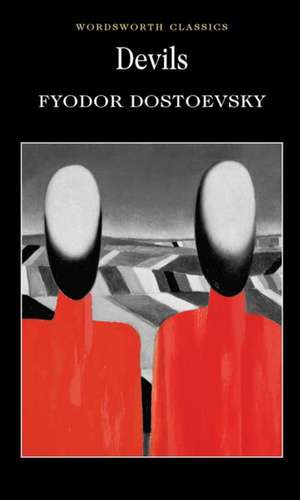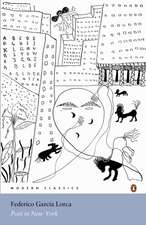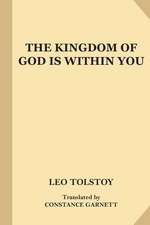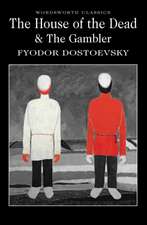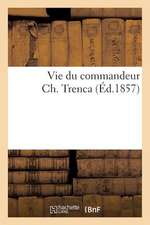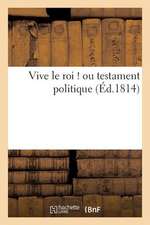Devils: Wordsworth Classics
Autor Fyodor Mikhailovich Dostoevsky Richard Nicholson Traducere de Constance Garnetten Limba Engleză Paperback – 31 dec 2009
Translated by Constance Garnett with an Introduction by A.D.P. Briggs.
In 1869 a young Russian was strangled, shot through the head and thrown into a pond. His crime? A wish to leave a small group of violent revolutionaries, from which he had become alienated. Dostoevsky takes this real-life catastrophe as the subject and culmination of Devils, a title that refers the young radicals themselves and also to the materialistic ideas that possessed the minds of many thinking people Russian society at the time.
The satirical portraits of the revolutionaries, with their naivety, ludicrous single-mindedness and readiness for murder and destruction, might seem exaggerated - until we consider their all-too-recognisable descendants in the real world ever since. The key figure in the novel, however, is beyond politics. Nikolay Stavrogin, another product of rationalism run wild, exercises his charisma with ruthless authority and total amorality. His unhappiness is accounted for when he confesses to a ghastly sexual crime - in a chapter long suppressed by the censor.
This prophetic account of modern morals and politics, with its fifty-odd characters, amazing events and challenging ideas, is seen by some critics as Dostoevsky's masterpiece.
Din seria Wordsworth Classics
-
 Preț: 15.03 lei
Preț: 15.03 lei -
 Preț: 26.42 lei
Preț: 26.42 lei -
 Preț: 27.20 lei
Preț: 27.20 lei -
 Preț: 26.17 lei
Preț: 26.17 lei -
 Preț: 26.38 lei
Preț: 26.38 lei -
 Preț: 26.01 lei
Preț: 26.01 lei -
 Preț: 26.94 lei
Preț: 26.94 lei -
 Preț: 28.96 lei
Preț: 28.96 lei -
 Preț: 26.01 lei
Preț: 26.01 lei -
 Preț: 29.76 lei
Preț: 29.76 lei -
 Preț: 27.71 lei
Preț: 27.71 lei -
 Preț: 27.35 lei
Preț: 27.35 lei -
 Preț: 27.76 lei
Preț: 27.76 lei -
 Preț: 29.76 lei
Preț: 29.76 lei -
 Preț: 29.76 lei
Preț: 29.76 lei -
 Preț: 28.21 lei
Preț: 28.21 lei -
 Preț: 29.51 lei
Preț: 29.51 lei -
 Preț: 27.71 lei
Preț: 27.71 lei -
 Preț: 29.19 lei
Preț: 29.19 lei -
 Preț: 29.24 lei
Preț: 29.24 lei -
 Preț: 30.28 lei
Preț: 30.28 lei -
 Preț: 27.71 lei
Preț: 27.71 lei -
 Preț: 25.91 lei
Preț: 25.91 lei -
 Preț: 26.17 lei
Preț: 26.17 lei -
 Preț: 25.19 lei
Preț: 25.19 lei -
 Preț: 30.28 lei
Preț: 30.28 lei -
 Preț: 28.21 lei
Preț: 28.21 lei -
 Preț: 26.42 lei
Preț: 26.42 lei -
 Preț: 26.99 lei
Preț: 26.99 lei -
 Preț: 28.21 lei
Preț: 28.21 lei -
 Preț: 27.71 lei
Preț: 27.71 lei -
 Preț: 25.31 lei
Preț: 25.31 lei -
 Preț: 26.67 lei
Preț: 26.67 lei -
 Preț: 24.87 lei
Preț: 24.87 lei -
 Preț: 25.10 lei
Preț: 25.10 lei -
 Preț: 30.51 lei
Preț: 30.51 lei -
 Preț: 25.65 lei
Preț: 25.65 lei -
 Preț: 27.96 lei
Preț: 27.96 lei -
 Preț: 25.35 lei
Preț: 25.35 lei -
 Preț: 25.87 lei
Preț: 25.87 lei -
 Preț: 27.96 lei
Preț: 27.96 lei -
 Preț: 25.65 lei
Preț: 25.65 lei -
 Preț: 28.21 lei
Preț: 28.21 lei -
 Preț: 27.45 lei
Preț: 27.45 lei -
 Preț: 26.17 lei
Preț: 26.17 lei -
 Preț: 26.94 lei
Preț: 26.94 lei -
 Preț: 27.20 lei
Preț: 27.20 lei -
 Preț: 26.17 lei
Preț: 26.17 lei -
 Preț: 27.30 lei
Preț: 27.30 lei -
 Preț: 25.76 lei
Preț: 25.76 lei
Preț: 29.51 lei
Nou
5.65€ • 5.87$ • 4.66£
Carte disponibilă
Livrare economică 25 martie-08 aprilie
Livrare express 08-14 martie pentru 28.69 lei
Specificații
ISBN-10: 1840220996
Pagini: 694
Dimensiuni: 124 x 196 x 41 mm
Greutate: 0.45 kg
Editura: Wordsworth Classics
Seria Wordsworth Classics
Descriere
Translated by Constance Garnett with an Introduction by A.D.P. Briggs.
In 1869 a young Russian was strangled, shot through the head and thrown into a pond. His crime? A wish to leave a small group of violent revolutionaries, from which he had become alienated. Dostoevsky takes this real-life catastrophe as the subject and culmination of Devils, a title that refers the young radicals themselves and also to the materialistic ideas that possessed the minds of many thinking people Russian society at the time.
The satirical portraits of the revolutionaries, with their naivety, ludicrous single-mindedness and readiness for murder and destruction, might seem exaggerated - until we consider their all-too-recognisable descendants in the real world ever since. The key figure in the novel, however, is beyond politics. Nikolay Stavrogin, another product of rationalism run wild, exercises his charisma with ruthless authority and total amorality. His unhappiness is accounted for when he confesses to a ghastly sexual crime - in a chapter long suppressed by the censor.
This prophetic account of modern morals and politics, with its fifty-odd characters, amazing events and challenging ideas, is seen by some critics as Dostoevsky's masterpiece.
